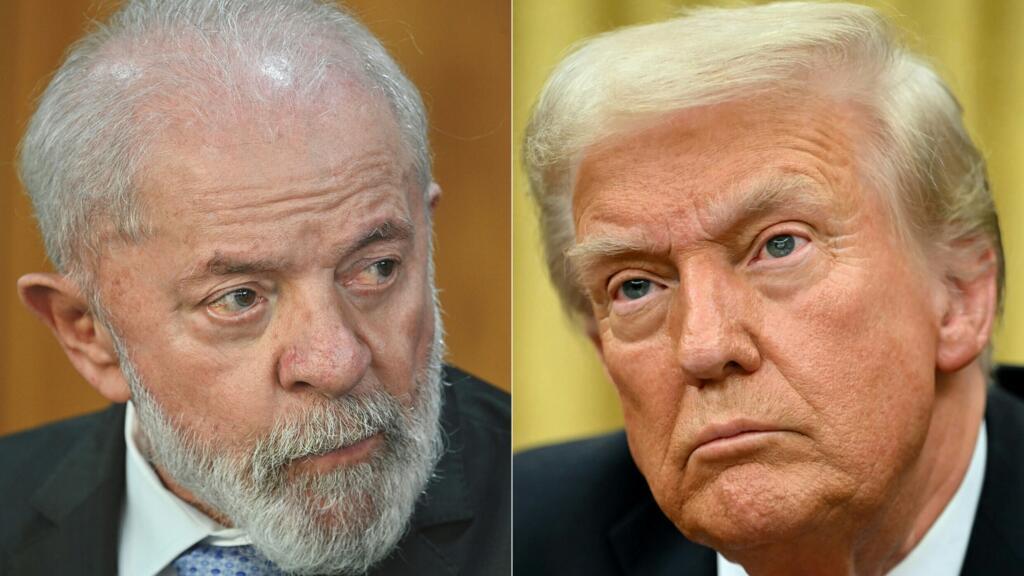Brazil’s President Lula Issues Warning Over US Tariffs
Brazilian President Luiz Inácio Lula da Silva has raised concerns regarding potential retaliatory tariffs against the United States should President Donald Trump proceed with plans to increase import duties by 50%. This warning is linked to the ongoing criminal trial of Lula’s predecessor, Jair Bolsonaro, and reflects Brazil’s stance on international trade relations.
Recommended reading: Poilievre Calls for House Recall, NDP Opposes
Reciprocity Law Activation
In a statement made to TV Record, Lula asserted that he would invoke Brazil’s reciprocity law, which was recently endorsed by Congress, if diplomatic negotiations with the US do not yield satisfactory results. He indicated that Brazil would match any increase in tariffs imposed by the US, stating, “If there’s no negotiation, the reciprocity law will be put to work. If he charges 50% from us, we will charge 50% from them.” Lula underscored the importance of mutual respect in trade relationships, stating his preference for both offering and receiving respect.
Potential for a Trade War
Lula’s remarks have heightened fears of a potential trade war between Brazil and the United States, drawing parallels to the tensions that have arisen between the US and China in recent years. Trump has previously expressed a willingness to retaliate against nations that impose tariffs on the US, suggesting that this situation could escalate further.
Senate President Davi Alcolumbre and Chamber of Deputies Speaker Hugo Motta, both moderate politicians who have occasionally disagreed with Lula, voiced their support for the reciprocity law. They affirmed that Brazil must protect its sovereignty, stating, “We will be ready to act with balance and firmness in defense of our economy, our productive sector, and the protection of Brazilian jobs.”
Trump’s Intervention in Brazilian Affairs
The issue has been further complicated by Trump’s recent correspondence with Brazil, which he shared on social media. In this letter, he condemned the ongoing trial of Bolsonaro, whom he described as a victim of a “witch hunt.” This intervention has drawn criticism, as it appears to intertwine trade policy with political matters in Brazil.
Political analysts have noted that Trump has previously utilised tariffs as tools for addressing various issues, including drug trafficking and international tax regulations. However, his attempts to influence Brazil’s judicial proceedings concerning Bolsonaro’s alleged attempts to overturn the presidential election results have raised eyebrows. Bolsonaro claims he is facing political persecution from Brazil’s Supreme Court regarding allegations related to his actions following his defeat in the 2022 elections.
The Diplomatic Response
In light of these developments, Lula has instructed his diplomats to return Trump’s letter should it reach the presidential palace in Brasilia. The letter criticises Brazil’s judicial system and references recent rulings affecting social media companies as justification for the proposed tariff increases set to commence on 1 August.
Trump has justified his tariff measures under the 1977 International Emergency Economic Powers Act, arguing that the persistent trade deficit is a national crisis. However, the fact that the US enjoys a trade surplus with Brazil challenges the validity of this rationale.
Impacts on Trade Negotiations
Negotiations that had been underway since Trump imposed initial tariffs in April now appear to be in jeopardy. Officials within Lula’s administration speculate that Trump’s actions are strategically aimed at undermining Brazil’s ties with other nations in the Southern hemisphere, particularly highlighted during the recent BRICS summit in Rio de Janeiro. At this summit, Lula reiterated his ambitions for an alternative currency to the dollar, a proposal that has consistently provoked Trump’s discontent.
Political Ramifications
The implications of Trump’s interference in Brazilian affairs have inadvertently fostered a sense of unity in a nation often characterised by political division. While some allies of Bolsonaro argue that Lula’s actions have provoked Trump’s ire, others advocate for a more cautious approach in negotiations.
Editorials in Brazilian media have described Trump’s actions as akin to mafia tactics, while also commending Lula’s response as appropriate. Analysts have posited that Trump’s involvement might backfire, potentially bolstering Lula’s position in the face of declining popularity as he prepares for re-election.
Conclusion
The conflict surrounding tariffs and Bolsonaro’s trial exemplifies the intricate relationship between domestic politics and international trade. As negotiations and diplomatic dialogues continue, the outcomes will likely have significant repercussions for both Brazil’s economy and its political landscape, particularly as the next elections approach.

